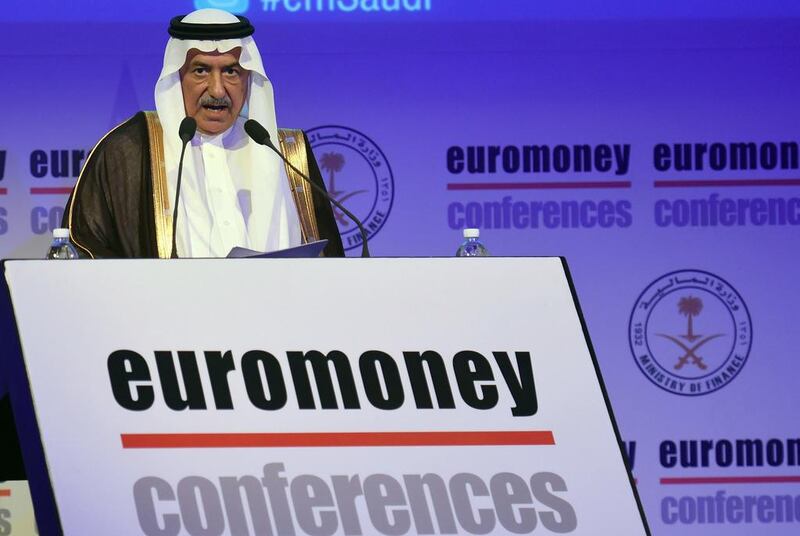Saudi Arabia has overhauled foreign ownership and investment regulations for listed companies, seeking to encourage participation by international institutional investors in a wide-ranging privatisation programme.
The country’s Capital Market Authority (CMA) on Monday widened the definition of Qualified Foreign Investors (QFI) to include financial institutions such as sovereign wealth funds and university endowments as well as banks.
The regulator also said that the minimum value of assets under management for QFIs will be reduced to 3.75 billion Saudi riyals (Dh3.67bn), compared with the current 18.75bn riyals.
Under the new rules, which will come into effect by the end of June next year, QFIs will be able to own up to 49 per cent of a company’s capital, unless a company’s bylaws or any other regulations require a lower foreign ownership limit. Individual QFIs will be able to own up to 10 per cent of a company’s share capital, compared with the current level of 5 per cent.
“The CMA aims for these measures to provide greater stability to the overall capital market environment, through applying international best practices, incentivising investors in an environment that supports the national economy,” the regulator said in its statement.
The easing of ownership restrictions was welcomed by asset managers as a greater incentive for foreign investors.
“This move highlights Saudi Arabia’s seriousness in attracting a broader range of international investors that bring with them technical expertise as well as improved governance and transparency standards,” said Bassel Khatoun, the chief investment officer for Mena equities at Franklin Templeton in Dubai.
“International investors will add sophistication and maturity to the Saudi Arabian market over time.”
The participation of foreign institutional investors in Saudi privatisations is a key element of the country’s ambitious economic reform plan, unveiled last month, that is intended to reduce dependence on oil revenues.
The country has announced plans to list a 5 per cent stake in Saudi Aramco, a move that could raise in excess of $100bn.
The opening of the Saudi stock exchange, the region’s largest, to QFIs in June last year was hailed as a milestone at the time but has so far failed to attract large-scale foreign investment into Saudi equities.
Licensed QFIs, which include Blackrock, Ashmore Group, Citigroup and HSBC, owned just 0.09 per cent of stocks listed on the Tadawul at the end of last week, according to stock market data.
“We are not surprised, it takes time for international investors to come to the market,” CMA’s chairman, Mohammed Al Jadaan, said at the Euromoney Conference in Riyadh on Tuesday.
Mr Al Jadaan said that the introduction of QFIs last year has had a positive effect on corporate transparency among Saudi-listed companies looking to attract foreign investment.
“In the last 18 months there has been a big improvement in research about the market and individual equities,” he said.
“There has also been a noticeable improvement in governance and communications, companies holding press conferences and talking about their results.”
Ryan Lemand, the head of managed solutions for asset management at ADS Securities in Abu Dhabi, said the gradual opening of the market to foreign investors was a deliberate strategy by the Saudi authorities. “Saudi Arabia didn’t want a wall of money coming in all at once when they opened the doors to QFIs last year,” he said.
“Their approach has been more incremental, gradually rolling out something that is well thought out, based on solid principles. Today’s announcement is a natural extension of that policy.”
The CMA also announced on Monday that it had approved a request from the Tadawul to amend the transactions settlement cycle for listed shares to T+2 from T+0, and also announced plans to introduce regulations for securities lending and covered short-selling. These regulations are also expected to come into effect by June next year.
“We are aiming to tighten back-office process to make sure that we have extra controls over activity post-trade. We want to provide a safer environment for all types of investor,” said Khalid Abdullah Al Hussan, Tadawul’s chief executive, in Riyadh. “Over the last two years we have been working closely with stakeholders to ensure the changes we introduce are the changes that the Saudi capital market needs.”
Mr Lemand said such instruments were essential for attracting international investors. “Covered short-selling and lending and borrowing are essential tools for foreign institutional investors and professional portfolio managers,” he said. “Having such tools in place should create substantial liquidity for the market.”
The Tadawul’s current T+0 settlement cycle, coupled with the lack of instruments such as short-selling and securities lending, have been viewed as major obstacles to the inclusion of Saudi stocks in MSCI’s widely tracked Emerging Market Index.
“MSCI inclusion is very important for … institutional investors and even for some local funds,” said Mr Al Hussan. “But from our perspective MSCI is an outcome not an objective.”
business@thenational.ae
Follow The National's Business section on Twitter






